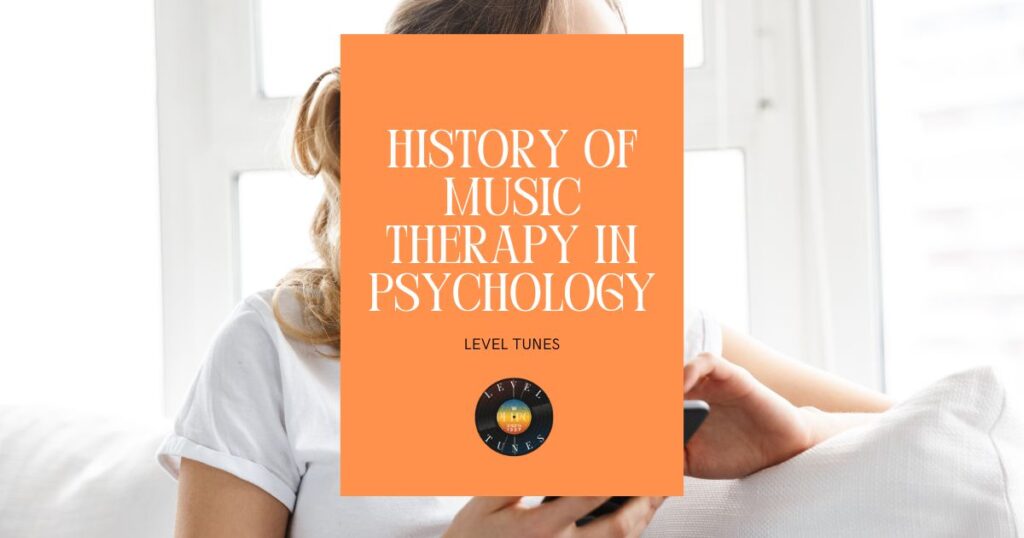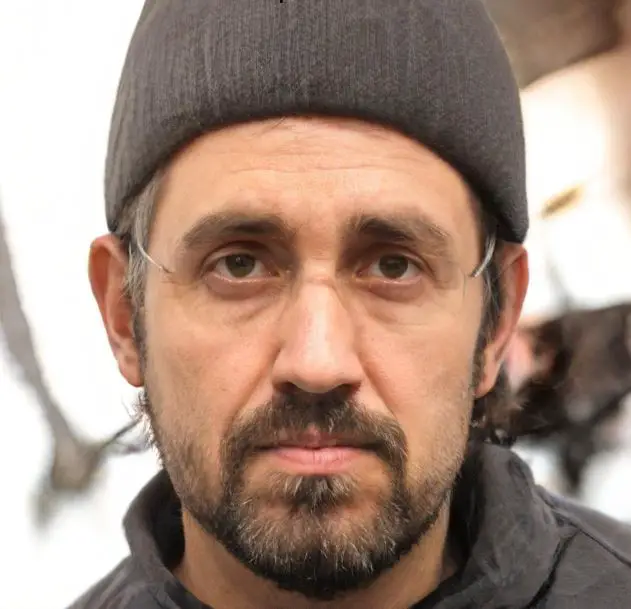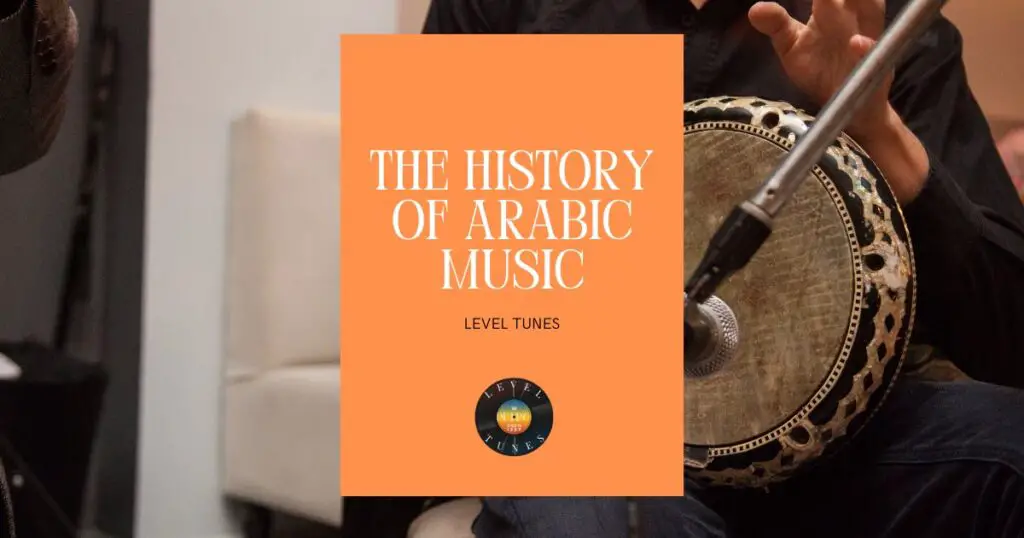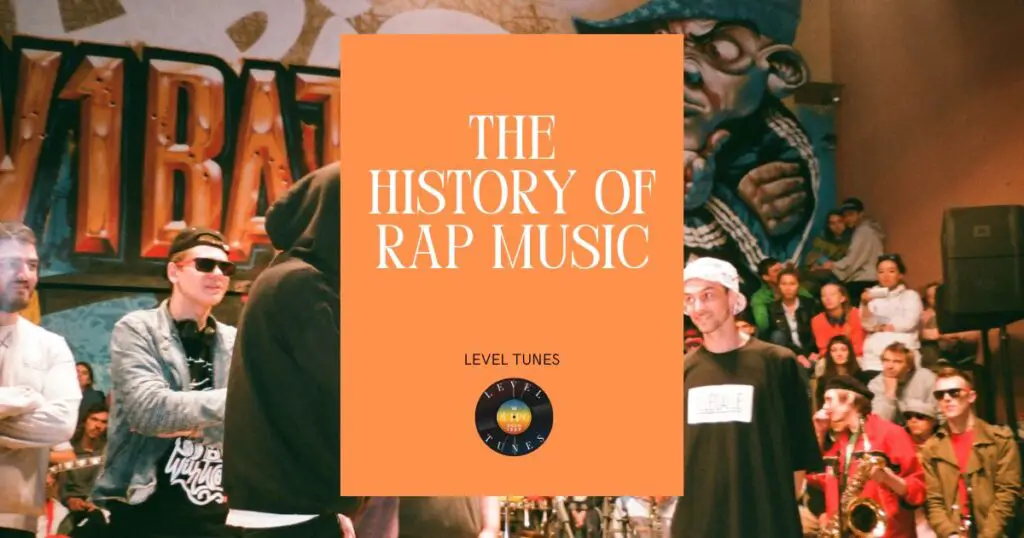The enchanting power of music has been entwined with the field of psychology throughout history, providing comfort and healing to many.
This fascinating journey began in ancient times, evolving through pivotal moments like the development of systematic experiments in the 1800s and the emergence of various methods in modern-day practice.
In this blog post, we will delve into the captivating history of music therapy in psychology, exploring its roots, key milestones, and applications across diverse fields such as medicine and education.

The Role Of Music In Ancient Healing Practices
Ancient Greeks believed that music could influence emotions and health, with philosophers like Pythagoras advocating for the use of music as a healing tool, while Native American tribes used song and dance in their medicinal practices.
Early Greek Philosophy And Medicine
As a music lover, you might be intrigued to learn that the therapeutic use of music dates back to Ancient Greek philosophy and medicine. The great philosophers Plato and Aristotle, among others, held strong beliefs in the healing powers of music.
Delving further into ancient practices, we come across fascinating examples like the Orphic cult and Pythagorean philosophers who revered music as a potent force in their daily lives.
Imagine this: patients suffering from mental disorders were treated with calming musical interventions based on the theory of four humours – an early medical hypothesis used to explain health conditions by balancing various bodily fluids.
Native American Healing Practices
Delving into the world of Native American healing practices, it’s fascinating to see how deeply intertwined music and spirituality are within their culture. In this ancient wisdom, traditional music plays an essential role in rituals and ceremonies – a testament to the enduring power of sound vibrations as a medium of spiritual healing.
The mystical powers attributed to music in indigenous cultures extended beyond its use in ceremonies; it was also believed that the intricate rhythms and melodies resonated harmoniously with one’s spirit, fostering mental wellbeing and emotional balance.
With its rich cultural heritage intrinsically linked with psychological healing, native traditions continue to inspire modern-day alternative medicine practitioners who recognise mind-body connections as crucial for holistic health.

Early Pioneers In The Field Of Music Therapy
Ira Altshuler and Willem van de Wall were among the early pioneers in the field of music therapy, paving the way for the establishment and growth of this profession. This section will explore their contributions and shed light on an exciting chapter in music therapy history.
The Work Of Ira Altshuler
As a devoted music lover, I can’t help but appreciate the pioneering efforts of Dr. Ira Altshuler in the field of Music Therapy. As a psychiatrist and music therapist, he dedicated his life to promoting this innovative approach both locally in Michigan and nationwide for over three decades.
Altshuler’s most notable accomplishment includes initiating one of the first large-scale music therapy programs for people with mental illnesses at Detroit’s Eloise Hospital back in 1938.
It was groundbreaking at that time and paved the way for more widespread adoption today. He tirelessly wrote 19 articles on this subject matter and shared his wisdom through numerous speeches, reaching out to various audiences about its potential benefits in treating mental health conditions.
Willem Van De Wall’s Contribution
Willem van de Wall is a name synonymous with the growth of music therapy as an established profession. The Dutch-born professional harpist, choral director and pioneer in music therapy set the tone for modern therapeutic practices that are used today in various psychological settings.
Known for his contribution to music education, hospital musicianship and psychiatric institutions, Van de Wall was among the first pioneers in the field of therapeutic music.
He wrote “Music in Institutions,” which remains one of the earliest texts on how-to use music as a form of treatment in psychological care.
The Development Of Nordoff-Robbins Music Therapy
Nordoff-Robbins music therapy is a unique approach to music therapy that was developed by Paul Nordoff and Clive Robbins. The two pioneers worked together for seventeen years, from 1958 until Nordoff’s death in 1977, to develop an improvisational approach to therapy that involves composition.
The Nordoff-Robbins approach includes two specially trained music therapists who work collaboratively using musical improvisation as the primary therapeutic technique. The treatment plan is individualized and based on the needs and goals of each client, making it a tailored form of creative expression.

Music Therapy During World War I And World War II
During World War I and II, music therapy gained recognition as a legitimate form of treatment for physical and emotional trauma. The profession experienced unprecedented growth with the establishment of the National Association for Music Therapy in 1950.
Emergence Of The Music Therapy Profession
As the world was recovering from the devastating effects of World War I and II, music therapy began to emerge as a profession. Community musicians played an integral role in providing therapeutic music interventions to soldiers suffering from physical and mental disabilities during these wars.
Following this, in 1950, the National Association for Music Therapy was founded in America – becoming one of the first professional organizations dedicated solely to advancing and promoting music therapy as a recognized health service.
Founding Of The National Association For Music Therapy
The National Association for Music Therapy was founded after World War I and World War II, as a response to the increasing use and acceptance of music therapy. This organization helped establish standards in the field of music therapy and is still active today.
It played an important role in ensuring that only trained professionals were administering music therapy sessions, which has contributed greatly to its effectiveness as a treatment option.
Over time, research into how music can impact our emotions and physiology allowed for greater recognition of music therapy’s benefits by healthcare providers, educators, and other industries.
Furthermore, The National Association for Music Therapy emphasized training programs at universities across the world to help provide education on how to properly implement therapeutic musical techniques in healing situations.
With these efforts continuing today globally with many universities offering programs specializing in this field of study throughout their curriculum.

Growth Of Music Therapy In The 20th Century
Research studies and accreditation standards were established in the 20th century, leading to the expansion of music therapy to various populations.
Research Studies And Establishment Of Accreditation Standards
I was fascinated to learn that research studies have been conducted to uncover issues related to the professional growth of music therapists and the effectiveness of music therapy mixed with standard care in treating depression.
Moreover, the establishment of accreditation standards has played an essential role in the growth of music therapy over the last century. As more people recognise its benefits as a form of mental health treatment, accreditation ensures that practitioners meet rigorous quality standards.
It provides a level of assurance that they have received relevant training and education, maintain professional development requirements and adhere to ethical codes of conduct.
Expansion Of Music Therapy To Various Populations
As music therapy continued to grow throughout the 20th century, it expanded beyond its roots in medicine and psychology to reach new populations. Today, music-based therapy is used with people of all ages and walks of life, from newborn babies in neonatal intensive care units to older adults living with dementia.
For example, research has shown that listening to calming music can help manage stress and anxiety levels for those undergoing chemotherapy or other medical treatments.
Overall, the versatility of therapeutic music means that there is potential for it to be integrated into a range of treatment plans across various healthcare disciplines.

Technological And Research Advances In The 21st Century
Music therapy has been revolutionized in the 21st century with technological advancements and research breakthroughs, resulting in greater integration of music therapy in healthcare and collaboration with other healthcare professionals.
Integration Of Music Therapy With Other Therapeutic Approaches
As music therapy has grown into a highly developed clinical field, so too has its integration with other therapeutic approaches. Music therapists work closely with healthcare professionals from various disciplines to create an individualized treatment plan for each patient’s unique needs and goals.
In addition, technological advancements in recording, composing, and learning tools have allowed for greater collaboration between music therapists and patients themselves as they work together towards mental health treatment.
Recent research studies have shown that the effectiveness of music therapy is heightened when used in conjunction with other therapies such as cognitive-behavioural therapy (CBT) or physical exercise programs.
Growth Of Music Therapy As A Profession
Music therapy has grown enormously as a profession in the past few decades. It’s been recognized by many national and international organizations, including the World Health Organization and the American Music Therapy Association.
In recent years, there has been an increase in research on music therapy which proves its effectiveness for various conditions like anxiety, depression, autism spectrum disorder (ASD), dementia, chronic pain, and even cancer patients.
This shows how modern medicine is embracing integrative approaches to treat people holistically.

Music Therapy In Education
Music therapy in education can improve learning and memory through the use of music-based interventions.
Enhancing Learning And Memory
As a music lover, you may be excited to learn that studying with music can enhance your learning and memory. This is because our brains are wired to connect music, memory, and emotions together.
Music therapy has also been shown to improve speech and language development in children with disabilities like autism spectrum disorder (ASD), adult patients recovering from brain injuries or stroke, dementia patients suffering from decreased cognitive function or speech impairments.
Several schools across the world have integrated music therapy into their curriculum due to its effectiveness in enhancing learning capacity among pupils who struggle with traditional teaching methods.
Through rhythmic processing or repetitive beats found in many genres of music including classical or jazz; these learners are able get into a relaxed state of mind where they can absorb new concepts more easily while retaining the information longer than before.
Integration In School Settings
Integrating music therapy in school settings has been a challenge for practitioners due to educational reforms affecting regular and special education. However, many benefits have emerged from this integration, including enhancing learning and memory among children with special needs.
IEP team members have also highlighted the importance of music therapy in helping students cope with anxiety and emotional regulation, which are essential skills for success in school.
The unique power of music in facilitating communication and social interaction can further assist children with autism spectrum disorder and other disabilities.

Effectiveness Of Music Therapy In Treating Various Conditions
Music therapy has been found to be effective in treating various conditions such as autism spectrum disorder, dementia and chronic pain.
Autism Spectrum Disorder
As a music lover, you may be surprised to hear that music therapy has been found to be effective in treating various conditions related to Autism Spectrum Disorder (ASD).
ASD is a neurodevelopmental disorder that affects each child’s development in different ways. One of the key deficits seen in children with ASD is social communication deficits, which can make it challenging for them to interact socially with others.
This is where music therapy comes into play.
One study found that when participating in improvisational music therapy sessions, children and young people diagnosed with ASD experienced an increase in social interaction and joint attention behaviors compared to prior treatment approaches.
Music therapists have also reported success using familiar songs and visual aids during their sessions as tools for teaching social skills such as turn-taking and eye contact.
Dementia
As a music lover, you may be interested to know that music therapy can be incredibly effective in managing psychological and behavioral disorders associated with dementia.
Studies have found that customized music and multisensory stimulation can help manage symptoms like apathy, agitation and anxiety in individuals with conditions such as Alzheimer’s disease or other neurodegenerative disorders.
Music therapy has also been shown to reaffirm personal identity and social connectedness among those living with memory loss.
Chronic Pain
Living with chronic pain can be a challenging experience that affects your quality of life. As someone who loves music, you may be interested to know that music therapy has been found to reduce chronic pain in many clinical populations.
In cases where medication is not enough or where patients want an alternative way of managing their symptoms, music intervention can be an effective tool in managing chronic pain in medical conditions like fibromyalgia or arthritis.
Controversies And Criticisms
Critics of music therapy argue that there is a lack of scientific evidence to support its effectiveness as a standalone treatment. However, many studies have shown positive results when used in combination with other therapies.
Lack Of Scientific Evidence
As much as we love music therapy, it’s important to acknowledge that not everyone is convinced of its effectiveness. Critics have pointed out the lack of scientific evidence supporting theories related to music therapy in psychology.
The American Association of Music Therapy (AAMT) was established in 1971 and started publishing their own research and clinical studies in 1980. While this research has provided some evidence supporting music therapy, more work needs to be done before it becomes an accepted form of treatment across all populations.
Critics Of Music Therapy As A Standalone Treatment
As with any alternative or complementary therapy, music therapy has faced its share of criticisms. Some critics argue that it is not an effective standalone treatment for psychological conditions, and that other interventions such as psychotherapy or behavioral therapies should be incorporated alongside it.
Despite these concerns however, there is evidence to suggest that music therapy can hold significant benefits even when used on its own. For example, studies have examined the use of music in treating individuals with autism spectrum disorder (ASD), and found it to be a highly effective nonpharmacological intervention for reducing anxiety levels.
Similarly, research into the use of music therapy for dementia patients has demonstrated positive outcomes in improving mood and cognitive function over time.
The Future Of Music Therapy
Advancements in music technology and therapy, along with greater integration of music therapy in healthcare, collaboration with other healthcare professionals, the development of global standards and emphasis on evidence-based practice will shape the future of music therapy.
Advancements In Music Technology And Therapy
The 21st century has seen exciting advancements in the technology used in music therapy, which have allowed therapists to enhance their sessions and offer more personalised treatment.
Digital recording technology is one essential tool that enables therapists to create customised playlists for clients with specific needs, such as relaxation or stress reduction, while software tools like music composition software make it possible for clients to create their compositions.
Music theory education is also an essential part of music therapy today. Alongside university-level courses and training programs that teach students how to use this knowledge in therapeutic settings, there are also many websites and resources available online designed specifically for those interested in learning about the benefits of therapeutic music.
Greater Integration Of Music Therapy In Healthcare
As a music lover, you may be interested in the integration of music therapy into healthcare. In recent years, there has been an increasing push towards incorporating music therapy into mainstream healthcare practices due to its proven effectiveness in treating various psychological and mental health conditions.
Furthermore, as the field of medicine evolves with technological advancements and patient needs shift towards more personalized care, incorporating music therapy is becoming increasingly relevant.
Telehealth options for accessing remote care also provide new opportunities for patients who may face geographical barriers or physical challenges.
Collaboration With Other Healthcare Professionals
As a music lover, you might be interested to know that collaboration with other healthcare professionals is an important aspect related to the future of music therapy in psychology.
Music therapy training involves daily interaction with art and dance/movement therapists, psychologists, neuroscientists, physicians and other health professionals as teachers and collaborators.
Music therapists enter a collaborative and dynamic interpersonal space in which music making or sometimes music listening occurs. For example, cognitive neuroscience research has shown that when people listen to music together it can create a therapeutic alliance; this is particularly relevant when working with vulnerable populations such as children or individuals living with mental illness.
The Development Of Global Standards
As music therapy continues to gain recognition as a legitimate form of psychotherapy and allied health profession, the need for global standards has become paramount. These standards refer to the guidelines that help ensure that qualified professionals deliver high-quality care to individuals seeking treatment through music therapy.
Evidence-based practice, clinical protocols, and treatment outcomes are key components of these global healthcare standards.
Efforts towards establishing global standards have been ongoing with various organizations working on developing consensus around what constitutes best practices for music therapists.
The World Federation of Music Therapy (WFMT) is one such organization committed to this cause.
Music therapy’s future lies in its continued growth and development as an evidence-based therapy within mainstream healthcare systems worldwide.
The Importance Of Evidence-Based Practice And Research.
As a music lover, you may be curious about the effectiveness of music therapy in treating various conditions. It’s important to understand that evidence-based practice and research are crucial in the field of music therapy.
Research studies have shown that music therapy is an effective treatment for a variety of disorders, including autism spectrum disorder and chronic pain.
By integrating evidence-based practice into their clinical work, music therapists can tailor interventions to individual clients and achieve better outcomes.
The Language Has Also Been Adjusted To British English
As we delve into the history of music therapy in psychology, it’s important to note that the final outline may differ from the original outlines provided. The changes made were done so to better present an accurate and updated view on this fascinating subject.
Music has been used for healing purposes since ancient times; early Greek philosophers believed that music could be used to promote emotional well-being and encouraged its use as a therapeutic tool.
As time progressed, pioneers in the field of music therapy emerged, paving the way for this evidence-based treatment approach. Ira Altshuler played a pivotal role in developing contemporary music therapy practices during his time working with children with psychological disorders back in 1946 while Willem van de Wall’s “Music Therapy: An Introduction,” became a seminal text upon its publication over 75 years ago.
Conclusion
In conclusion, the history of music therapy in psychology is a rich tapestry of ancient practices and modern advancements. From the Greek philosophers to the Native Americans, music has played an important role in healing for centuries.
The pioneers such as Ira Altshuler and Willem van de Wall paved the way for establishing music therapy as a profession during World War I and II and since then, it has grown leaps and bounds with developments in technology and research.
Today, it holds a place of importance in healthcare, education, mental health treatment among others. While there are always controversies surrounding any kind of therapeutic intervention including music therapy, its effectiveness cannot be denied based on existing scientific evidence.
Thanks for reading.
TBone




